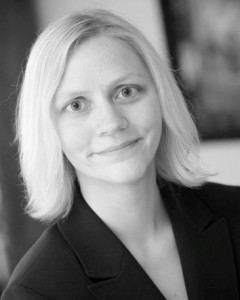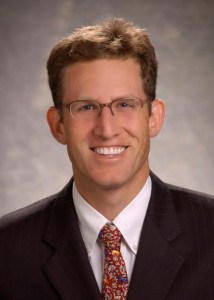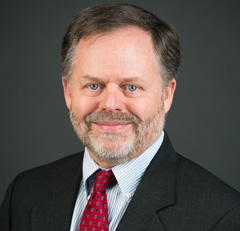Aired on 9/14/2015
This session will address climate risk and security on all fronts from the risk assessment perspective (impacts on governance, economic vitality, national, regional and international security) to potential solutions (risk management, policy, and technical).
The opening webinar examined the security implications of climate risk and provided a context for the subsequent place-based and sector-based webinars. GSI is a university-wide interdisciplinary hub for global security research that focuses on openness, inclusiveness and connections to the global defense, development and diplomacy communities. The initiative addresses emerging global challenges characterized by complex interdependencies and conflicting objectives, where there may not be obvious solutions. These challenges include resource security, global health, climate risks, and resulting economic and political instability.
Climate risks have the potential to affect every natural and social system, to harm populations, disrupt economic systems, and contribute directly or indirectly to conflicts within and across jurisdictional borders. The Global Climate Security webinar series convenes global thought leaders to seek pathways to improve responses to destabilizing climate risks.
Meet the Panelists:

Moderator: Dr. Nadya T. Bliss is the Director of GSI at Arizona State University and was the founding Group Leader of MIT’s Lincoln Laboratory’s Computing and Analytics Group. GSI serves as ASU’s university-wide hub focusing on addressing emerging global challenges characterized by complex interdependencies often presenting conflicting objectives, such as cyber security and digital identity, mitigation and adaptation to climate change impacts, and human security, all of which require multi-disciplinary research and cross-mission collaboration among the defense, development and diplomacy communities.

Christine Parthemore is a Senior Research and Policy Fellow at the Center for Climate and Security, where she focuses on climate change issues related to global health security and nuclear energy. In 2015 she became the director for climate and food security at the Center for American Progress and founded CLP Global, LLC to provide advice and research on international affairs to NGOs and government clients. She served as the Senior Advisor to the Assistant Secretary of Defense for Nuclear, Chemical, and Biological Defense Programs in the U.S. Department of Defense from 2011 to 2015. In that capacity, she advised and assisted in managing more than $3 billion per year in research and development, acquisition, treaty compliance, and international partnership programs. She managed major projects focused on the Asia-Pacific and Middle East regions, including a multi-year effort contributing to the international mission to remove and destroy Syria’s chemical weapons. Since 2010, she has also served as an Adjunct Professor in the Global Security Studies Program at Johns Hopkins University in Washington, D.C., where she designed and teaches a graduate course in Energy and Environmental Security.

Dr. Joshua Busby is an Associate Professor of Public Affairs at UT Austin, a fellow in the RGK Center for Philanthropy and Community Service andprincipal investigator on a new Minerva Initiative-funded research project on Complex Emergencies and Political Stability in Asia (CEPSA). Josh is also the Crook Distinguished Scholar at the Robert S. Strauss Center for International Security and Law where he serves as a lead researcher in the Strauss Center project on Climate Change and African Political Stability and the author of several studies on climate change, national security, and energy policy for the Council on Foreign Relations, the Brookings Institution, the German Marshall Fund, and the Center for a New American Security (CNAS). He has also written on U.S.-China relations on climate change for CNAS and Resources for the Future.

Dr. Marc Levy is Deputy Director of the Center for International Earth Science Information Network (CIESIN), a unit of Columbia University’s Earth Institute. He teaches environmental security courses in Columbia’s School of International and Public Affairs, directs a new educational initiative on Environment, Peace and Security and is a founding member of the Environmental Peacebuilding Academy. He is a political scientist specializing in the human dimensions of global change, known for his work on environmental security, global environmental governance, and sustainable development metrics. His research has been supported by a number of agencies, including the National Science Foundation, U.S. Agency for International Development, and NASA. He has provided expert testimony to the US Congress, was a member of the National Academy of Sciences Committee “Assessing the Impacts of Climate Change on Social and Political Stresses,” and was a Lead Author on the IPCC AR5 chapter on Human Security. He is a member of the World Economic Forum’s Global Agenda Council on Data Driven Development.
The Global Climate Security Series
Webinar 1: Peace, Conflict and the Scale of the Climate Risk Landscape (August 25)
Webinar 2: Climate Risk Reduction at the National and Sub-National Scale
Webinar 3: Decision Making and Climate Security for Business
Webinar 4: Climate Security and the 4Ds of Defense
Webinar 5: Global Governance in the Face of Non-Traditional Risk
